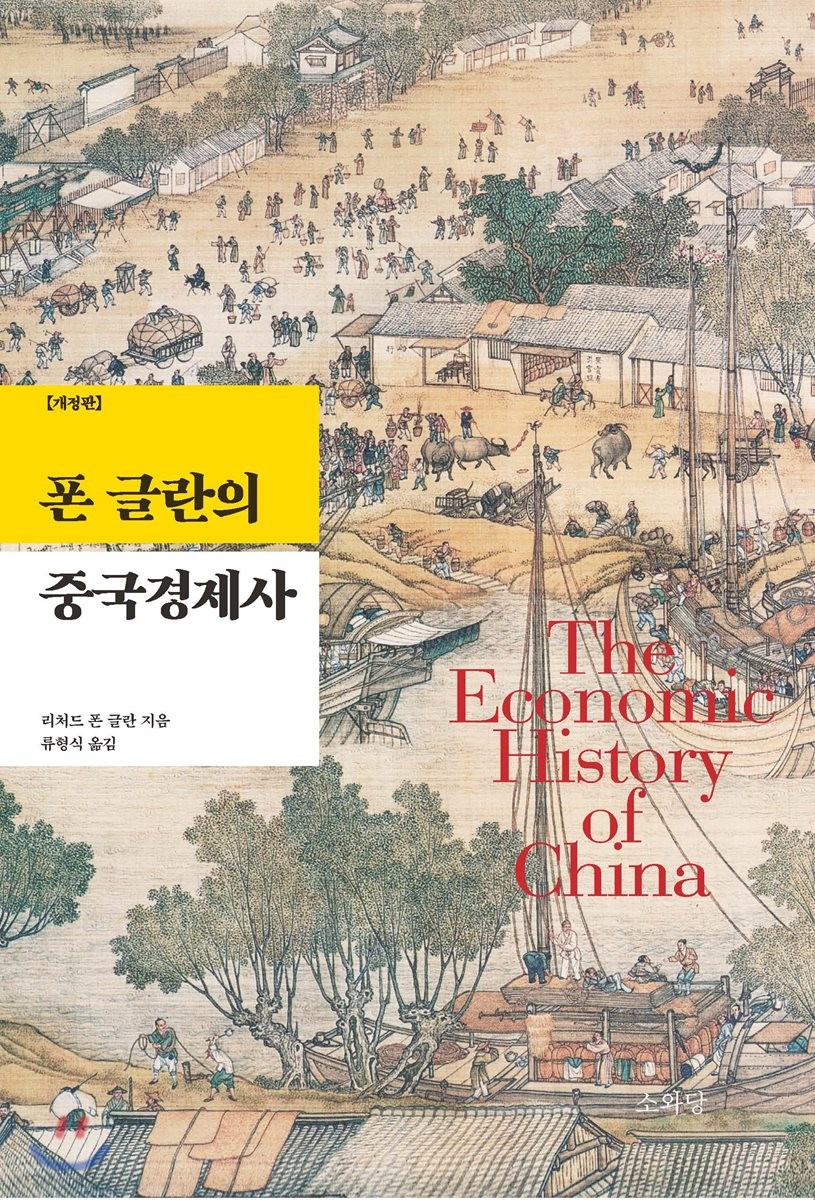
단행본
The economic history of China: from antiquity to the nineteenth century
- 발행사항
- Cambridge, United Kingdom: Cambridge University Press, 2016
- 형태사항
- xiv, 461 p. : illustrations, maps ; 24 cm
- ISBN
- 9781107615700
- 청구기호
- 320.912 V946e
- 서지주기
- Includes bibliographical references (pages 400-447) and index
소장정보
| 위치 | 등록번호 | 청구기호 / 출력 | 상태 | 반납예정일 |
|---|---|---|---|---|
이용 가능 (1) | ||||
| 1자료실 | 00016646 | 대출가능 | - | |
이용 가능 (1)
- 등록번호
- 00016646
- 상태/반납예정일
- 대출가능
- -
- 위치/청구기호(출력)
- 1자료실
책 소개
China's extraordinary rise as an economic powerhouse in the past two decades poses a challenge to many long-held assumptions about the relationship between political institutions and economic development. Economic prosperity also was vitally important to the longevity of the Chinese Empire throughout the preindustrial era. Before the eighteenth century, China's economy shared some of the features, such as highly productive agriculture and sophisticated markets, found in the most advanced regions of Europe. But in many respects, from the central importance of irrigated rice farming to family structure, property rights, the status of merchants, the monetary system, and the imperial state's fiscal and economic policies, China's preindustrial economy diverged from the Western path of development. In this comprehensive but accessible study, Richard von Glahn examines the institutional foundations, continuities and discontinuities in China's economic development over three millennia, from the Bronze Age to the early twentieth century.
The first comprehensive study of China's economic development across 3,000 years of history to be published in English.
The first comprehensive study of China's economic development across 3,000 years of history to be published in English.
목차
Introduction; 1. The Bronze Age economy (1045 to 707 BCE); 2. From city-state to autocratic monarchy (707 to 250 BCE); 3. Economic foundations of the universal empire (250 to 81 BCE); 4. Magnate society and the estate economy (81 BCE to 485 CE); 5. The Chinese-nomad synthesis and the reunification of the empire (485 to 755); 6. Economic transformation in the Tang-Song transition (755 to 1127); 7. The heyday of the Jiangnan economy (1127 to 1550); 8. The maturation of the market economy (1550 to 1800); 9. Domestic crises and global challenges: restructuring the imperial economy (1800 to 1900); Bibliography; Index.





